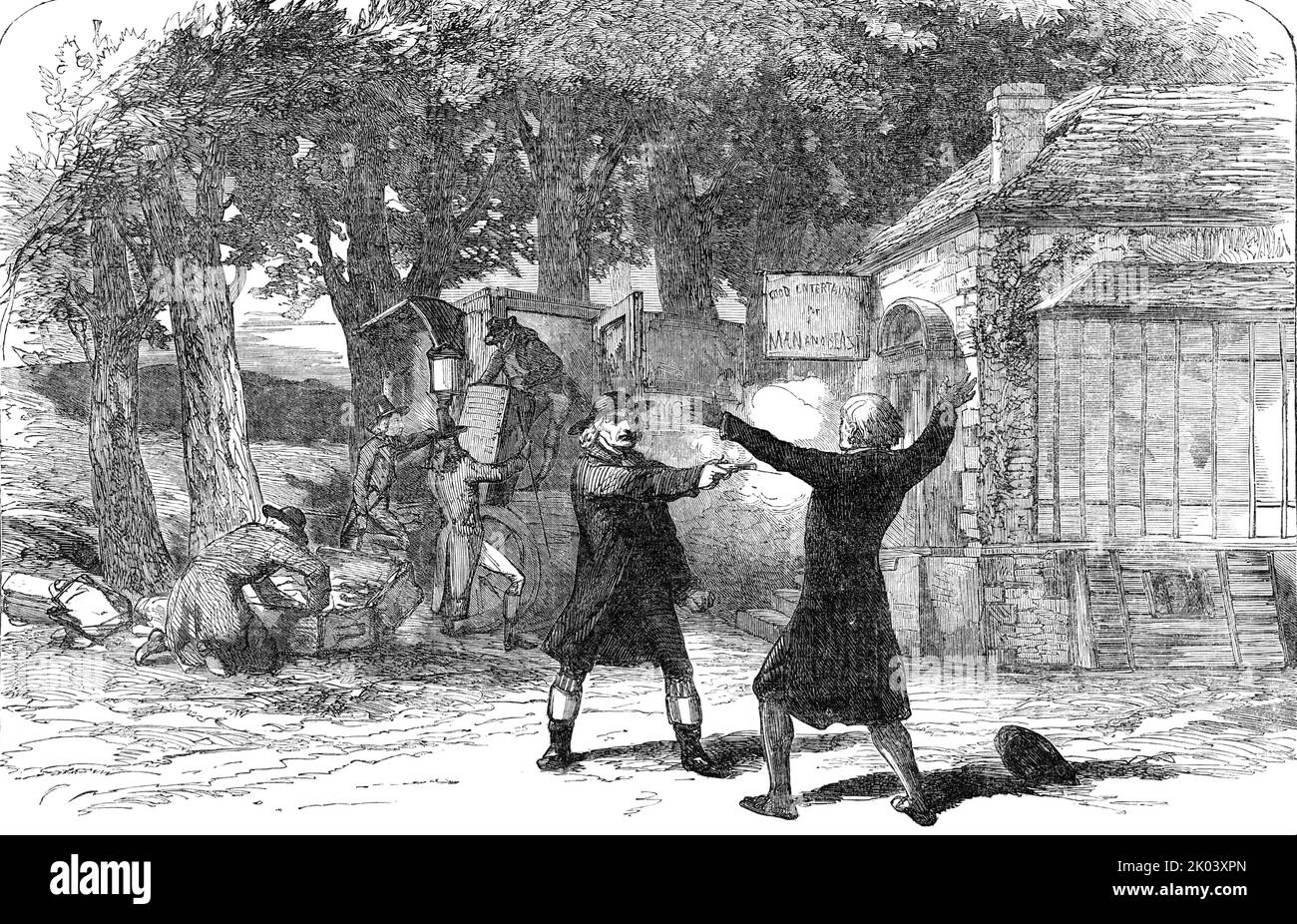Scene from the New Drama of "The Courier of Lyons", at the Princess' Theatre, 1854. London stage production of a play by Charles Reade. 'In the scene which we...present from the new melodrama, much credit is due to Mr. W. Gordon, or Mr F. Lloyds, for the stage arrangements and adjuncts, and general pictorial effect...old Lesurgues has returned, after a brief absence from his inn, and sees Dubosc, whom, from his extraordinary personal resemblance, he mistakes for his son, actually engaged in the murder. He interferes, and receives from the villain a shot in the shoulder while in the a

Image details
Contributor:
The Print Collector / Alamy Stock PhotoImage ID:
2K03XPNFile size:
24.6 MB (2.6 MB Compressed download)Releases:
Model - no | Property - noDo I need a release?Dimensions:
3655 x 2352 px | 30.9 x 19.9 cm | 12.2 x 7.8 inches | 300dpiPhotographer:
The Print CollectorMore information:
This image could have imperfections as it’s either historical or reportage.
Scene from the New Drama of "The Courier of Lyons", at the Princess' Theatre, 1854. London stage production of a play by Charles Reade. 'In the scene which we...present from the new melodrama, much credit is due to Mr. W. Gordon, or Mr F. Lloyds, for the stage arrangements and adjuncts, and general pictorial effect...old Lesurgues has returned, after a brief absence from his inn, and sees Dubosc, whom, from his extraordinary personal resemblance, he mistakes for his son, actually engaged in the murder. He interferes, and receives from the villain a shot in the shoulder while in the act of recognising his features. In this recognition is, indeed, the final effect of the scene...the character of the father is acted by Mr. Graham, one of our most careful and precise of actors, whose steady progress in his profession entitles him to high commendation'. From "Illustrated London News", 1854.